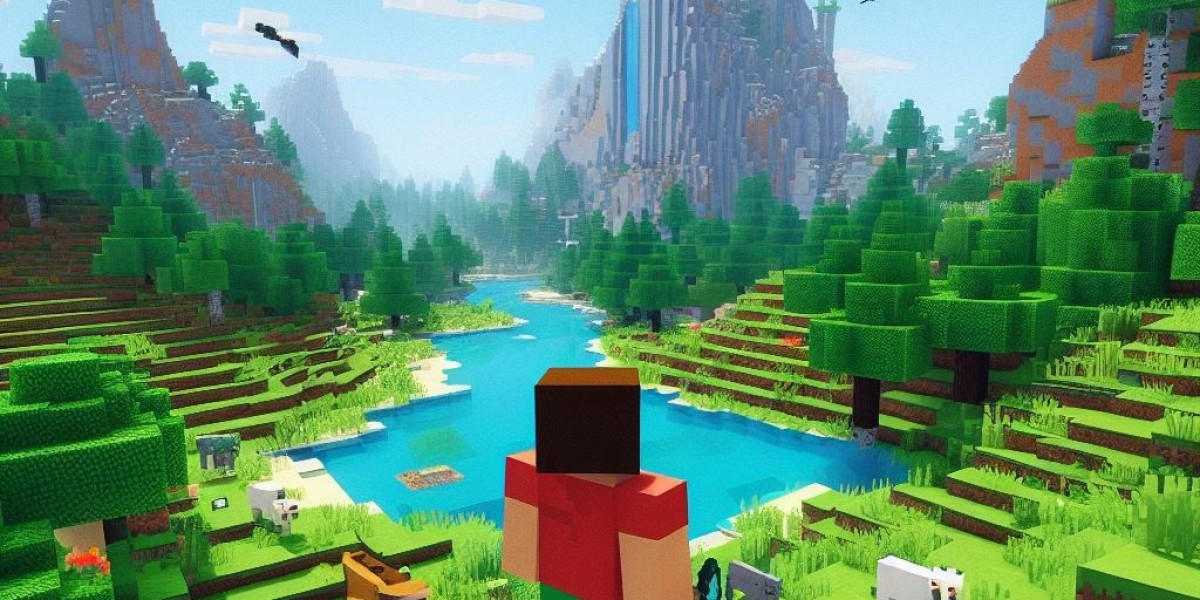Minecraft, the beloved sandbox game, offers endless possibilities for creativity, exploration, and adventure. While playing solo can be fun, the true magic of Minecraft often unfolds in multiplayer mode, where you can connect with friends and build entire worlds together. This is where Minecraft server hosting comes into play. In this comprehensive guide, we'll delve into the world of Minecraft server hosting, affordable minecraft server hosting providers, exploring its benefits, different types, key factors to consider, and much more.
Why Choose Minecraft Server Hosting?
While it's possible to play Minecraft with friends through local area networks (LANs) or by using Minecraft Realms, these options have limitations. LAN connections restrict players to the same network, and Realms have limited player slots and customization options. This is where dedicated Minecraft server hosting shines.
Here are some compelling reasons to opt for server hosting:
- 24/7 Availability: A hosted server remains online constantly, allowing you and your friends to jump in and play whenever you want, regardless of whether the original host is online.
- Enhanced Performance: Dedicated servers are built to handle multiple players and complex gameplay without lag or performance issues.
- Greater Control: Server hosting grants you administrative control, allowing you to customize game settings, install mods and plugins, manage players, and back up your world.
- Larger Player Capacity: Unlike Realms or LAN connections, hosted servers can accommodate a larger number of players simultaneously, fostering a vibrant community.
- Customization and Modding: Server hosting enables you to install mods and plugins, drastically altering the gameplay experience and adding new features, items, and challenges.
- Community Building: Hosting your own server allows you to create a dedicated community of players who share your interests and playstyle.
Types of Minecraft Server Hosting
When it comes to Minecraft server hosting, you'll encounter several options, each with its own characteristics:
- Shared Hosting: This is the most affordable option, where your server shares resources (CPU, RAM, bandwidth) with other users on the same physical server. It's suitable for smaller groups of players and basic gameplay.
- VPS Hosting (Virtual Private Server): VPS hosting provides you with a virtualized server environment with dedicated resources, offering better performance and control compared to shared hosting. It's a good choice for medium-sized communities and modded gameplay.
- Dedicated Server Hosting: With dedicated hosting, you get an entire physical server to yourself, providing maximum performance, control, and customization. This is ideal for large communities, complex modpacks, and resource-intensive gameplay.
Key Factors to Consider When Choosing a Host
Selecting the right Minecraft server host is crucial for a smooth and enjoyable gaming experience. Here are some key factors to keep in mind:
- RAM (Random Access Memory): RAM is essential for server performance. The more RAM you have, the better your server can handle multiple players, mods, and complex gameplay.
- CPU (Central Processing Unit): The CPU processes game logic and calculations. A powerful CPU ensures smooth performance and reduces lag.
- Storage: Consider the amount of storage you need for your world files, mods, and backups. SSD (Solid State Drive) storage offers faster read and write speeds compared to traditional HDDs.
- Bandwidth: Bandwidth determines how much data can be transferred between the server and players. Sufficient bandwidth is crucial for minimizing lag and ensuring a smooth connection.
- Server Location: Choose a server location that is geographically close to your player base to minimize latency (ping).
- Control Panel: A user-friendly control panel simplifies server management tasks such as starting, stopping, configuring, and updating your server.
- Customer Support: Reliable customer support is essential in case you encounter any issues with your server. Look for hosts that offer 24/7 support via live chat, email, or phone.
- Pricing: Compare pricing plans from different hosts and choose one that fits your budget and requirements. Be wary of extremely cheap offers, as they may compromise on performance or features. Learn how to contact bluehost customer support in our blog.
Setting Up Your Minecraft Server
Once you've chosen a hosting provider, setting up your Minecraft server is usually a straightforward process:
- Choose a Server Type: Select the desired Minecraft version (e.g., Vanilla, Spigot, Paper) and any modpacks you want to install.
- Configure Server Settings: Adjust game settings such as difficulty, game mode, and world generation options.
- Install Mods and Plugins (Optional): If desired, install mods and plugins to customize your gameplay experience.
- Start Your Server: Once everything is configured, start your server and share the server IP address with your friends.
Conclusion
Minecraft server hosting opens up a world of possibilities for enhanced multiplayer experiences. By choosing the right hosting provider and configuring your server to your liking, you can create a thriving community and enjoy countless hours of fun with friends. Whether you're looking for a small server for a close group of friends or a large-scale community server, understanding the basics of Minecraft server hosting will empower you to create the perfect online world.







